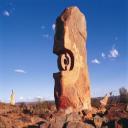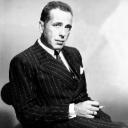Yahoo Answers is shutting down on May 4th, 2021 (Eastern Time) and beginning April 20th, 2021 (Eastern Time) the Yahoo Answers website will be in read-only mode. There will be no changes to other Yahoo properties or services, or your Yahoo account. You can find more information about the Yahoo Answers shutdown and how to download your data on this help page.
Trending News
Would atheists agree that believing in random creativity or the big bang explosion is no different?
believing in that a stick of dynamite, throwing it in a printing factory , and expecting the explosion to produce the "declaration of independence?
sour b i t c h the fact is you dont have any evidence, so doesnt it make you wonder, why anyone in their right mind would believe in the big bang?
the truth hurts, lol you could try it, but I would imagine you would probably "get life" and I dont mean breathing on your own.
interest you sound rather like the pot calling the kettle black with your ignorant answer
thunder "and the fool says in his heart "there is no God"
godless how do you explain when the big bang happened according to your theory, it all came together, and it hung upon nothing, with oceans seperating the masses of land?
18 Answers
- Anonymous8 years agoFavorite Answer
Do we have any reason to think that matter and energy would act any differently?
The fact that it produces what we call life is amazing, but how do you know how improbable it is?
- 8 years ago
There is no correlation between a belief in the big bang and the belief in a diety.
You can believe both, neither, or one or the other regardless of your beliefs regarding a deity. The ONLY reason religion appears to be at odds with the big bang is because the fairy tale which is most popular right now says specifically that the universe was created in six days and in a completely different order than that which is proven by science.
People choose to believe an ancient book, which is a conglomeration of different pagan myths, over science.
It is silly, considering that its perfectly acceptable to believe that a god exists, and that the universe was created by the big bang. I don't believe in god personally, but the two concepts are not mutually exclusive.
- KeithLv 45 years ago
"Would atheists agree that believing in random creativity or the big bang explosion is no different?"
No it is very different, the idea of the so called big bang explosion is based on solid scientific evidence and observation, random creativity is totally different.
"believing in that a stick of dynamite, throwing it in a printing factory , and expecting the explosion to produce the "declaration of independence?"
That is an incredible stupid statement which theists of low intelligence keep spouting.
- ?Lv 78 years ago
No. You're just spouting creationist nonsense.
A scientific theory is a unifying concept that explains a large body of data. It is a hypothesis that has withstood the test of time and the challenge of opposing views. Modern physics explains the origin of the universe and the Big Bang Theory, which is supported by extensive empirical evidence. There is no evidence supporting the some-god-did-it hypothesis, and especially not the Yahweh-did-it hypothesis.
Six prominent facts supporting the Big Bang Theory are:
** The red shift of almost all galaxies, getting greater as their distance increases.
— This shows that the galaxies are flying away from each other, at greater speeds at greater distances.
** The cosmic microwave background radiation.
— This is a remnant of the radiation from the Big Bang, and has cooled over time to the exact temperature predicted.
** The variations in the cosmic microwave background radiation.
— These variations fit theoretical predictions, and were caused by quantum differences near the start of Big Bang.
** The proportions of the lightest elements and isotopes.
— This helps show that the calculations for nuclear interactions immediately following the Big Bang are correct.
** The changes in galaxies as we look further away (and thus back in time), with distant galaxies more primitive and having fewer heavy elements.
— This shows some of the changes in the universe since the Big Bang, and confirms the deep time of the universe.
** The change in the apparent speed of type 1a supernova as we look back in time, with distant supernova exploding more slowly.
— This shows that the light has been stretched out by the expansion of space over billions of years.
Positing a god to supposedly answer a question solves nothing. It just stops you from asking more questions.
For more about the Big Bang and its implications, watch the video at the 1st link - "A Universe From Nothing" by theoretical physicist Lawrence Krauss, read an interview with him (at the 2nd link), or get his new book (at the 3rd link). See the 4th link for "The Universe: Big Bang to Now in 10 Easy Steps." And, see the 5th link for "Quantum scientists make something out of nothing."
"The total energy of the universe is precisely zero, because gravity can have negative energy. The negative energy of gravity balances out the positive energy of matter. Only such a universe can begin from nothing. The laws of physics allow a universe to begin from nothing. You don't need a deity. Quantum fluctuations can produce a universe."
- Lawrence Krauss, physicist
"The cosmic microwave background radiation is one of the many reasons that we know that the Big Bang actually happened."
- Lawrence Krauss, physicist
Source(s): http://www.youtube.com/watch?v=-EilZ4VY5Vs http://www.samharris.org/blog/item/everything-and-... http://www.amazon.com/Universe-Nothing-There-Somet... http://www.space.com/13320-big-bang-universe-10-st... http://tinyurl.com/agfvch8 http://tinyurl.com/2zftk http://tinyurl.com/9ww982n - How do you think about the answers? You can sign in to vote the answer.
- Brigalow BlokeLv 78 years ago
1. "Big bang" is a mildly derogatory term for the "primeval atom" theory as it stood in the early 1950s, the term was invented by Sir Fred Hoyle for a BBC radio broadcast, Hoyle and another man had formulated a theory in the late 1940s in which the Universe was already almost infinitely old. It has been claimed, with some evidence, that Hoyle took a dislike to the primeval atom theory because it was too much like "Let there be light" in Genesis. In any case, the process was NOT an explosion, but an expansion of space-time which is continuing. No matter of any kind was formed in the first minute or two of the process, the energy density (temperature) of space was then too high for any matter to form.
However, as space expanded, the energy density declined, though the total amount of energy remained the same. This is equivalent to a fall in temperature. About three minutes after the process began matter in the form of quarks began to form and these soon combined to form protons and neutrons because the temperature was low enough to allow it. Not atoms, these came much later when the energy density was far lower.
2. Whatever you call it, the theory is actually about a process in the very early Universe, NOT the origin. The theory is supported by extensive evidence, including the observed and measured expansion of the Universe, the observed and measured overall chemical composition of the visible matter, being about 74% hydrogen and 25% helium with small amounts of lithium and beryllium. This chemical composition is entirely predictable from high energy physics experiments and accords precisely with the actual Universal composition The elements common on Earth such as silicon, oxygen, iron and carbon are in reality a minor constituent of the Universe as a whole. A third fact supporting the theory is the cosmic background radiation, which has been observed and measured since the middle 1960s and is in exquisite agreement with theoretical calculations.
3. After some hundreds of thousand of years, atoms began to form. The radiation released by this event was mostly in the visible and ultraviolet ranges and as it filled the Universe at the time, and the Universe has expanded since then, the radiation stretched in wavelength and is now in the microwave end of the radio spectrum.
4. Eventually some of these atoms began to fall together to form stars and galaxies from gravity. There were no planets.
5. After some millions of years, heavier elements formed in the guts of big stars were released into space in stellar accidents such as novae and supernovae. These were the sort of elements that form planets.
6. When new stars like our Sun began to form from left over hydrogen and helium, they also had some of these heavier elements in their accretion regions. These formed planets.
7. I am only too familiar with deliberate misrepresentation of the theory and drivel about sticks of dynamite (an explosive that is not longer much used, by the way) by creationists on this site and elsewhere. If you wanted an explanation of the big bang theory you could have consulted any of the excellent resources on the internet or even heaven forbid, some book in your local library. Instead you choose to post a deliberate misrepresentation of the theory on a question and answer site in the apparent belief that the atheists to whom you addressed the question are as dishonest as you seem to be. It takes a special kind of stupidity and ignorance to assume that everyone else is as stupid and as ignorant, but it is one of the main characteristics of the conspiracy theorist.
Source(s): https://www.youtube.com/watch?v=G91IU8cFJ7o - ?Lv 78 years ago
No, because the Big Bang was a rapid expansion of space/time, not an explosion. However, if you've been listening to the creationist lie mill all your life you don't have any idea what the theory really says and you think scientists claim that an explosion shot out planets, stars, giraffes, and koala bears.
Try learning what the theory really says before making a fool of yourself.
- 8 years ago
Talking about throwing dynamite in a printing factory and creating the Declaration of Independence kind of subjugates the FORMING OF THE ENTIRE ******* UNIVERSE! If you are going to think that shallow of something as complex as the universe, then by all means think on! But it won't get you anywhere.
- Michael KLv 78 years ago
The "birth" of the universe doesn't equal an explosion within a printing factory creating the Declaration.
We know how the document was created: humans. We're still trying to figure out how the Big Bang happened. The thing is, saying "Goddidit," is replacing one unknown for another.
- Fascinating...Lv 78 years ago
If you throw 10 x 10^21 sticks of dynamite into 10 x 10 ^21 printing factories, probability suggests that eventually, it will occur.
- Sour B!TchLv 58 years ago
If there were a vast body of evidence for the dynamite/printing factory scenario like there is for the big bang, then maybe.
@sylvia c: There is evidence, you haven't looked. And if, like most people, you experience emotional turmoil when your core beliefs are contradicted by reality, I suggest you not look because that's what will happen.
- interested1208Lv 78 years ago
*facepalm*
Another one thinking they are making sense and failing miserably....
You know it would be better if you actually found out what you are trying to sound profound about, before making a fool of yourself...
It is always interesting why some are so proud of their willful ignorance and want to publish it to the world...
BTW: Just how does this prove the existence of a god, ANY god?
IMHO









